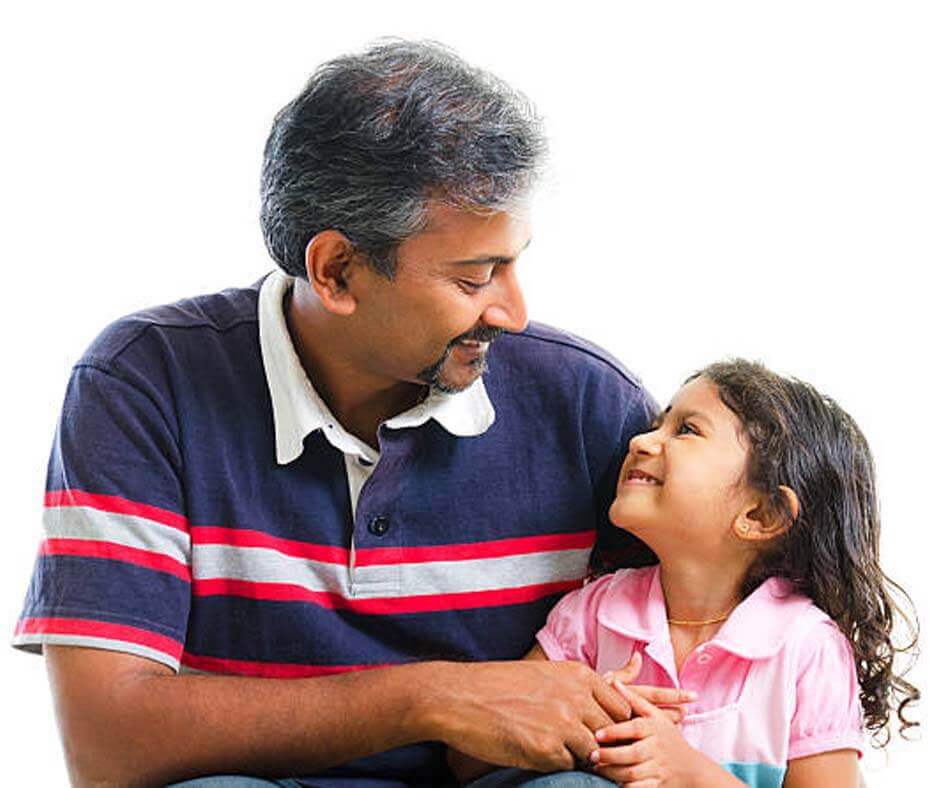How to Overcome Bad Communication in Parenting

The objective of communication is different for children in different age groups
Someone aptly said -“Four Very Powerful Words to say to your child: I Believe in you!” While there is no exact science that can guide us in saying it with certainty how communication should be in the growing years of the child, here are a few suggestions that have worked with many families.
Based on years of experience, hundreds of deeper and more meaningful relationships here is a simple timeline that will work with over 90% people.
Communication Tip for ages 0-1
If your kid is in this age bracket, all the child needs through communication is engagement. Play with the child.
Kids start recognizing sounds and tend to turn towards a sound when they hear it. They watch you carefully when you talk to them. Slowly they start recognizing your voice. Talk to the child as much as you can. They do not understand language yet they understand feelings. Express your joy, fill your voice with celebrations, laugh as you look at your child, make exaggerated facial expressions, etc. This will engage your child. This is fun and games for the child. The more you play with your child, the more they connect with you, the more they will learn from you.
Point out to surrounding sounds, this will help your child to develop listening skills and awareness. Relate sound with action like waving as you say ‘bye-bye’, this will help your child relate to gestures. Go a step ahead and mimic your baby when he/she is making sounds. It helps the child understand the concept of taking turns in communication.
Take some time out from your schedule to sit and play or look at picture books together. This will make them feel important.
Communication Tip for ages 1-3
In the age group of 1 to 3, kids grow very fast. There is a lot that happens during these years. You can start with ‘peek-a-boo’ and such other games to grab their attention and establish free-flowing communication.
During the first two years, keep talking to the child while performing actions. They will gradually connect words to the world around them.
Read to your kids regularly and expand their sentences. For example, if he says toys, ask him “Do you want your toys?”. If you keep doing this your kid will learn how to put words together to make small sentences.
Your child is beginning to learn a language. The more you talk with the child, the better he picks up communication.
There might be a time when your child is trying very hard to explain something to you but you are not getting it. They might get him frustrated and they might throw tantrums. Patience is the key. Wait for them to finish what they are trying to say. Keep exploring to understand what they are saying. The more patient you are, the more patient your child will learn to be.
Communication Tip for ages 3-6
During these years you build a bond with your kid. The child needs maximum attention. Take out enough time to talk to them about their day. This will not only help start a conversation but also sharpen their memory skills. Besides that, your child will learn how to pace and space their communication. They will become storytellers.
They are beginning to discover the world. They will ask a lot of questions. The more you patiently answer their questions, the more curious they remain about life. This will make them superb learners and great students of life. Encourage their questions and you would have played a brilliant role in their life.
Join your child in ‘pretend play’ and let them take the lead. Be a part of their world. This shows that you care and that you are actually interested in their life. This might be the right time to have casual conversations about shapes, days of the week, months etc. Your preschooler will be keen on sharing the new songs or poems he is learning at school. Pause and listen to them.
Even though your school going child may know lots of different words, it is important to introduce new words and phrases. Keep the learning going and have fun with words and rhymes.
Communication Tip for ages 6-10
Kids in this age group need a lot of amusement. They learn here to laugh at themselves and life. Be goofy with them. Let them goof around too. Let them be silly. And you be silly with them. Laugh a lot with them.
You can ask open-ended questions like “tell me something about your day”. You can also share your day with your kid to keep the communication activities.
An even better action would be to share: ‘What made you glad, mad and sad, today?’
Communication Tip for ages 10-16
Now your kid is growing and feeling like a young adult. Treat them with respect. Listen to them a lot especially about their whereabouts.
Ask for their opinion. Make them feel that they are important. Let them take certain decisions on their own.
You do not have to push them to open up to you. They may not open up fast but once they do, they will be completely transparent. Their need for a friend is highest here. Be the friend that they are looking for. Be the friend they desperately need.
Give them that leeway to be emotionally a little unstable. They will oscillate to extremes. They need maximum help and support to remain focused. Help them to do that.
To summarize –
As you must have seen with your child, communication cannot be the same across ages. During the child’s formative years the presence of the parent is the key.
Children need to have focused child-centered (not adult-centered) communication. Like we were discussing, children at different stages have very different needs, know their interest to have a communication they want to be a part of. Children are exposed to a lot of content, be a helping hand and guide them in the right direction.
The parent-child dynamics are ever changing and should keep growing. Your child grows with you. The more you communicate with your child, the more predictable you become for them and vice versa. The more you talk, the more you know each other’s personality and become friends rather than just being a family.
Friends support, motivate, inspire and keep you away from negatives. Even if you make a mistake, they will tell you what to do when you go wrong. They will still stand upright behind you and always push you on the back for more motivation.
That’s exactly what you need to do! You need to become a friend rather than being a parent always. Communication is the only way by how it’s possible!
Leave A Reply
You must be logged in to post a comment.





Comments
Nice informative post!
Wow! Nice tips here especially because they based on age group. I would love to implement a few.
Wow! Nice tips and very much practical too…